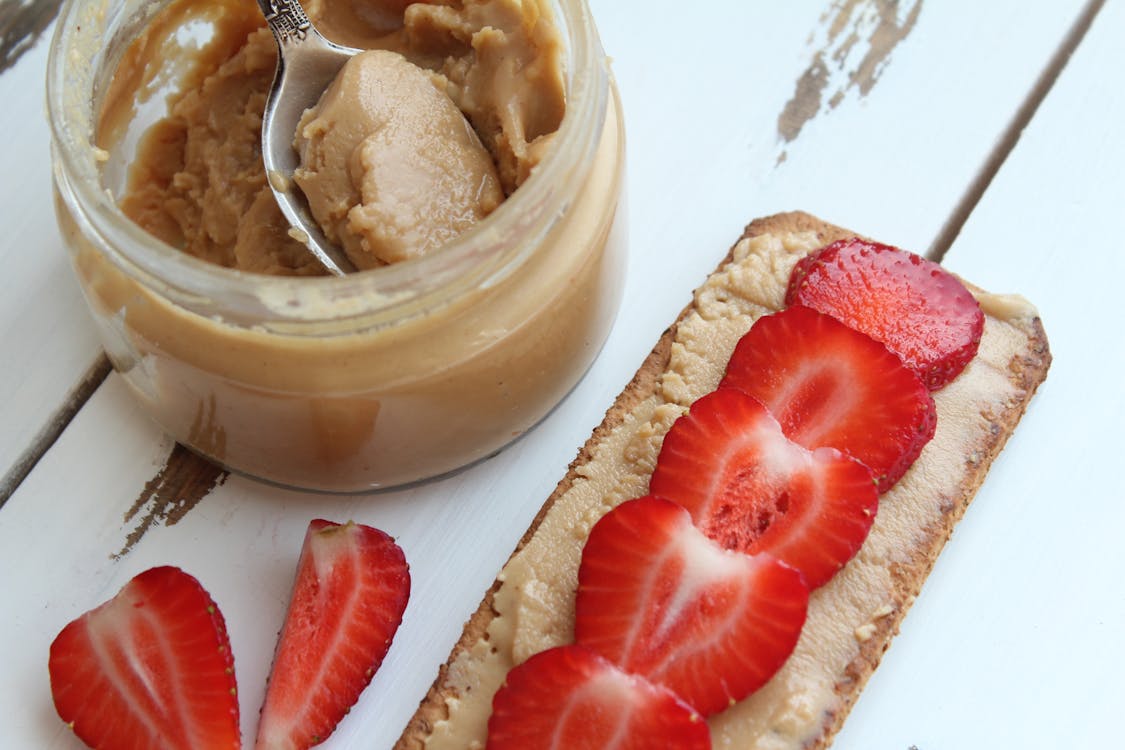Introduction
Absolutely! Peanut butter is not only delicious but also
packs a nutritional punch, making it a popular choice for health-conscious
individuals. In this comprehensive exploration, we'll delve into the myriad
health benefits of peanut butter, its nutritional composition, potential
concerns, and some delicious ways to incorporate it into your diet.
Nutritional Composition
Peanut butter is primarily composed of ground, roasted
peanuts, which are rich in healthy fats, protein, vitamins, and minerals. A
typical serving (2 tablespoons) contains around 190 calories, 16 grams of fat
(mostly unsaturated), 7 grams of protein, 6 grams of carbohydrates, and 2 grams
of fiber. It's also a good source of essential nutrients such as vitamin E,
magnesium, potassium, and niacin.
Health Benefits
1. Rich in Healthy Fats: Peanut butter contains predominantly
monounsaturated and polyunsaturated fats, which are heart-healthy fats. These
fats can help lower bad cholesterol levels (LDL) and reduce the risk of heart
disease when consumed as part of a balanced diet.
2. Good Source of Protein: With about 7 grams of protein per
serving, peanut butter can contribute to muscle repair and growth. It's
especially beneficial for vegetarians and vegans looking to boost their protein
intake.
3. Loaded with Nutrients: Peanut butter contains various
essential nutrients like vitamin E, an antioxidant that helps protect cells
from damage, and magnesium, which plays a crucial role in muscle and nerve
function, blood sugar regulation, and bone health.
4. Aids Weight Management: Despite being calorie-dense,
studies suggest that moderate peanut butter consumption may not lead to weight
gain. Its combination of protein, healthy fats, and fiber can promote feelings
of fullness and satiety, potentially reducing overall calorie intake.
5. Promotes Heart Health: The monounsaturated and
polyunsaturated fats found in peanut butter can help improve blood lipid
profiles, lower blood pressure, and reduce the risk of cardiovascular disease.
6. Supports Blood Sugar Control: Despite its carbohydrate
content, peanut butter has a low glycemic index (GI), meaning it doesn't cause
a rapid spike in blood sugar levels. This makes it a suitable choice for
individuals with diabetes when consumed in moderation.
7. May Reduce the Risk of Certain Diseases: Some research
suggests that regular consumption of peanuts or peanut butter may be associated
with a reduced risk of certain diseases, including type 2 diabetes, gallstones,
and colorectal cancer.
8. Improves Nutrient Absorption: The healthy fats in peanut
butter can aid in the absorption of fat-soluble vitamins like vitamin A, D, E,
and K, which are essential for various bodily functions, including immune
health, vision, and bone health.
9. Convenient and Versatile: Peanut butter is incredibly
versatile and convenient. It can be spread on toast, crackers, or fruit, added
to smoothies, used as a dip, or incorporated into savory dishes like sauces and
marinades.
Potential Concerns
While peanut butter offers numerous health benefits, there
are some potential concerns to consider:
1. Allergies: Peanut allergies are relatively common and can
cause severe allergic reactions in susceptible individuals. It's essential to
avoid peanut products if you have a known allergy.
2. Added Ingredients: Some commercial peanut butter brands
may contain added sugars, hydrogenated oils, and other additives. Opt for
natural peanut butter with minimal ingredients to avoid unnecessary additives.
3. Calorie Density: While peanut butter can be part of a
healthy diet, it's calorie-dense, so portion control is crucial, especially for
those watching their calorie intake.
4. Aflatoxins: Peanuts are susceptible to contamination by
aflatoxins, which are toxic compounds produced by certain molds. Choosing
high-quality peanut butter from reputable brands can help minimize exposure to
aflatoxins.
5. Potential Oxidation: The fats in peanut butter can
oxidize over time, leading to rancidity and the formation of harmful compounds.
Store peanut butter in a cool, dark place and consume it within a reasonable
timeframe to prevent oxidation.
Conclusion
In conclusion, peanut butter is a nutrient-rich food that
offers a wide array of health benefits. From its high content of healthy fats
and protein to its abundance of essential nutrients, peanut butter can be a
valuable addition to a balanced diet. However, it's essential to choose natural
varieties without added sugars or hydrogenated oils and practice moderation due
to its calorie density. With its versatility and delicious taste, peanut butter
is not only good for health but also a flavorful addition to various dishes and
snacks.

